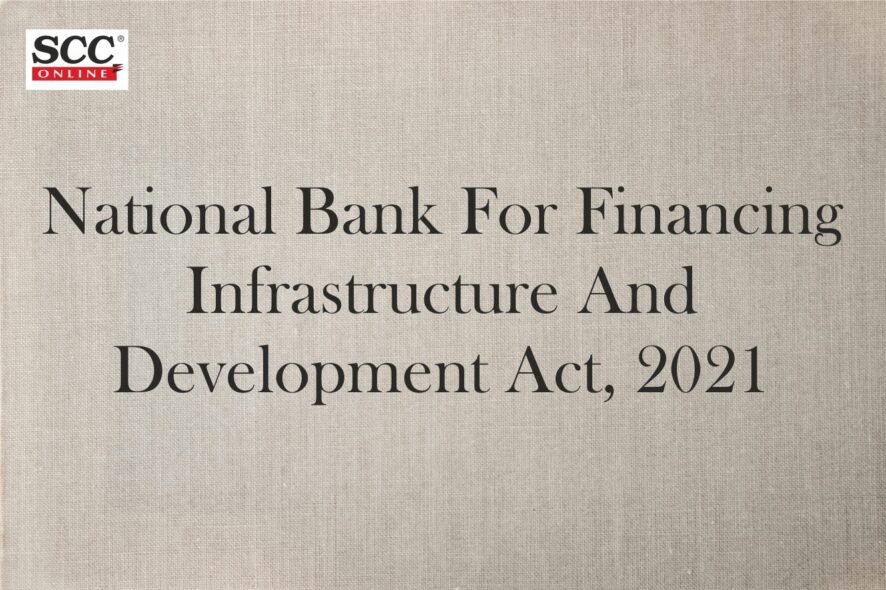The National Bank For Financing Infrastructure And Development Act, 2021 receives President’s assent on March 28, 2021. The Act seeks to establish the National Bank for Financing Infrastructure and Development (NaBFID) to fund infrastructure projects in India. The salient features of the Act are discussed below.
- Establishing NaBFID: The National Bank for Financing Infrastructure and Development will be established as a Development Financial Institution (DFI) for infrastructure financing. The authorised share capital of the Institution shall be one hundred thousand crore rupees divided into ten thousand crores of fully paid-up shares of ten rupees each. Shares of the Institution may be held by the Central Government, multilateral institutions, sovereign wealth funds, pension funds, insurers, financial institutions, banks etc.
- Purpose of NaBFID: The developmental objective of the Institution shall be to coordinate with the Central and State Governments, regulators, financial institutions, institutional investors and such other relevant stakeholders, in India or outside India, to facilitate building and improving the relevant institutions to support the development of long-term non-recourse infrastructure financing in India including the domestic bonds and derivatives markets.
The financial objective of the Institution shall be to lend or invest, directly or indirectly, and seek to attract investment from private sector investors and institutional investors, in infrastructure projects located in India, or partly in India and partly outside India, with a view to foster sustainable economic development in India.
- Key Functions: (i) form and manage subsidiaries or joint ventures or branches, in India or outside India; (ii) co-ordinate its operations in the field of infrastructure finance and maintain expert staff to study problems relating to infrastructure finance and be available for consultation to the Central Government, the Reserve Bank and the other institutions engaged in the field of infrastructure finance; (iii) set up trusts under the Indian Trusts Act, 1882 for establishment of funds for such nature as would assist in financing of infrastructure projects located in India; (iv) support the development of a deep and liquid market for bonds, loans and derivatives (v) lend and invest in infrastructure projects located in India, or partly in India and partly outside India; (vi) extend loans and advances for the purposes of providing financial assistance; (vii) take over or refinance existing loans extended by a lender for infrastructure projects located in India, or partly in India and partly outside India; (viii) transfer loans and advances granted by it, with or without the securities, to trusts, for consideration; (ix) set aside loans or advances held by the Institution and issue and sell securities based upon such loans or advances so set aside in the form of debt obligations, trust certificates of beneficial interest or other instruments, by whatever name called, and act as a trustee for the holders of such securities; (x) assign securities issued to the Institution; etc.
- Government grants: The Central Government may support the Institution through grants in the form of cash or marketable Government securities for upto five thousand crore rupees. The Government shall prescribe a concessional rate of fees, not exceeding 0.1 per cent at which Government guarantee may be extended to the Institution for borrowings from multilateral institutions, sovereign wealth funds, and such other foreign institutions as may be prescribed. Hedging costs in connection with any borrowing of foreign currency by the Institution for the purposes of granting loans and advances or its repayment, to insulate the Institution from any fluctuations in the rates of exchange, may be reimbursed by the Central Government in part or in full.
- Setting up of other development financial institution: The Act provides for any person to set up a DFI by applying to Reserve Bank of India. RBI may grant a licence for DFI in consultation with the central government. RBI will also prescribe regulations for these DFIs.
*Tanvi Singh, Editorial Assistant has put this story together.






